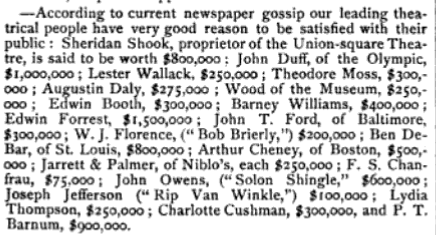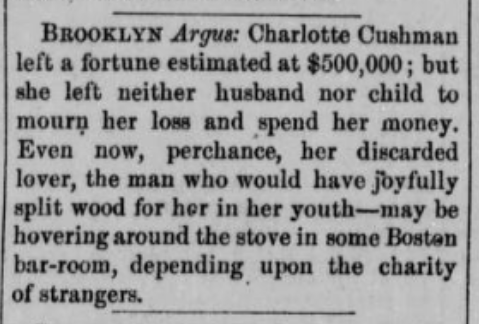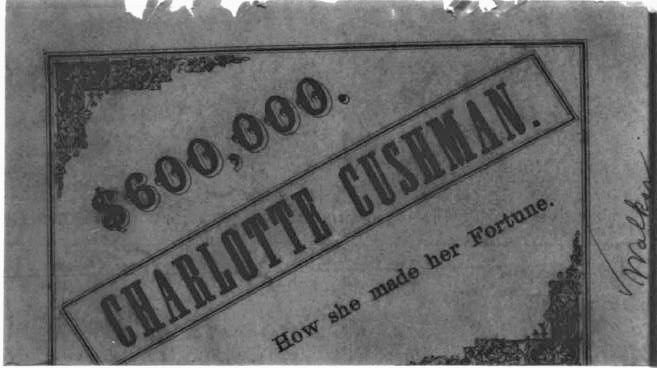Charlotte Cushman was one of the biggest stars of the Anglophone theater in the nineteenth century. We know this because of the sheer number of articles and biographical sketches available about Cushman. We know this because reviews of her performances do not tire of stressing how big a star she was.

We also know this, because evidently Cushman was well paid, very well paid in fact. So much so, that the size of her fortune regularly warranted its own mention in newspapers. (Which is not so say that Cushman’s private letters aren’t also full of discussions of money. In 1847, for example, she explains to her future agent that she intents to “gallop through the country as fast as I can & make as much money as I can.” Judging by the numbers listed below, she did just that.)
Here’s how (at least according to public sources), Cushman’s wealth has developed over time:
From 20.000 Pounds in netgain in 1852
Miss Cushman, it is said, has realised ₤20,000 +++ her professional tour in the States. At the conclusion of her present engagement she will re-visit England, for the purpose of taking farewell of the stage
“Foreign Intelligence,” Manchester Examiner and Times,
May 29, 1852 (Source)
To $200.000 networth in 1869

To $300.000 in 1872

(via GoogleBooks)
To $500.000 in 1876

(Source: OhioMemory.org)
To $600.000

In addition to increasing her personal wealth (and financially supporting her extended family), Cushman also accrued through her acting and reading substantial amounts of funding for the Sanitary Commission. More on the money raised for this cause during the Civil War can be found here (New York Times, Aug 13, 1864) and here (Emma Crow Cushman’s “A Memory,” 1918, p. 15).
Cushman herself was more often than not rather unhappy with her finances or at least anxious about them. To James T. Fields, for example, she wrote in 1862: “I hear you are making your fortune. alas why am not I. If Emma had only been content to stop in America this year. I would have made mine too” (Source; her correspondence with the James T. Fields overall is a rich source on financial concerns, Cushman’s as well as Stebbins’, her nephew’s, and that of the Fields’ themselves). Others were more generous in their judgment. Walter Moore Leman, in his biography Memories of an Old Actor (1886), says about Cushman: “She loved society and fame and money, and she had them all” (121-122).